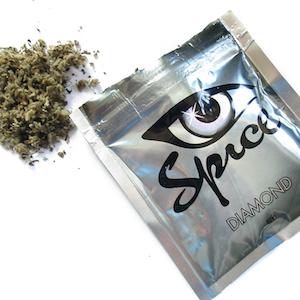Fake pot has a problem. Because people assume that pot is harmless, they also assume that synthetic pot is harmless. But that is a grave mistake.
Fake pot goes by several other names: Fake weed, synthetic marijuana, synthetic cannabinoids, K2, and spice. These drugs were created as a way for scientists to study the nervous system, but some people acquire them for recreational use. This is a terrible idea because their effect on the body is nothing at all like marijuana.
According to the CDC, a person who consumes fake pot could experience "rapid heart rate, vomiting, agitation, confusion, and hallucinations." Two years ago, a synthetic cannabinoid that was 85 times more potent than tetrahydrocannabinol (THC, the active ingredient in marijuana) caused a "zombie outbreak" in New York City. Users were staring blankly and groaning, and 18 of 33 people were taken to the hospital.
It's not clear whether synthetic cannabinoids on their own have the ability to kill people. A recent report linked fake pot to the deaths of two soldiers, but that was based on incorrect information and was retracted. In an ongoing incident in Illinois, synthetic pot has caused severe bleeding and killed three people, but it was adulterated with rat poison.
A Rose by Any Other Name?
What is clear is that words matter. If a person consumes synthetic pot under the misguided notion that it is somehow similar to regular pot, he is in for a very rude surprise. Public health officials and the media should start referring to it by another name.
Of course, people who really want to take drugs are going to do so regardless of what they're called. This proposed name change is meant only to discourage those who might confuse synthetic pot with wacky tobaccy.
When the potheads who publish the magazine High Times -- which is dedicated to promoting the use of marijuana -- is warning against the dangers of fake weed, you know it's serious.




